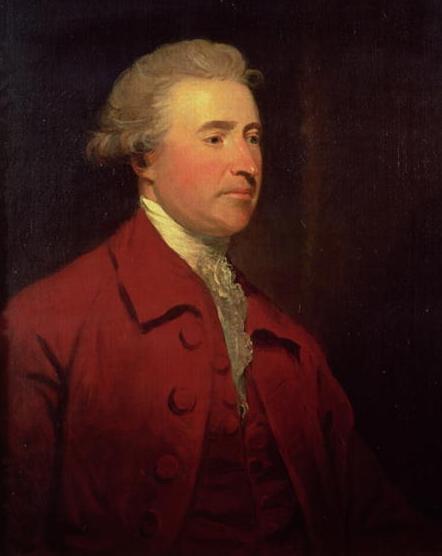Edmund Burke was an Irish statesman born in Dublin, as well as an author, orator, political theorist, and philosopher who, after moving to London, served as a member of parliament for many years in the House of Commons with the Whig Party.
Burke was a strong proponent of maintaining solid moral virtues in society, and of the importance of religion in attaining that virtue and keeping society together. These views were expressed in his A Vindication of Natural Society. Burke criticized British treatment of the American colonies, including through its taxation policies. He also supported the American Revolution, believing both that it couldn't affect British or European stability and would be an innovative experiment in political development because the Americas were so far away from Europe and thus could have little impact on England. Burke is remembered for his support for Catholic emancipation, the impeachment of Warren Hastings from the East India Company, and for his staunch opposition to the French Revolution. In his Reflections on the Revolution in France, Burke claimed that the revolution was destroying the fabric of good society, traditional institutions of state & society, and condemned the persecution of the Catholic Church that resulted from it. This led to his becoming the leading figure within the conservative faction of the Whig Party, which he dubbed the "Old Whigs", as opposed to the pro–French Revolution "New Whigs", led by Charles James Fox.
In the nineteenth century Burke was praised by both conservatives and liberals. Subsequently, in the twentieth century, he became widely regarded as the philosophical founder of modern conservatism.
✵
12. January 1729 – 9. July 1797
•
Other names
Эдмунд Берк,
ਐਡਮੰਡ ਬਰਕੀ
